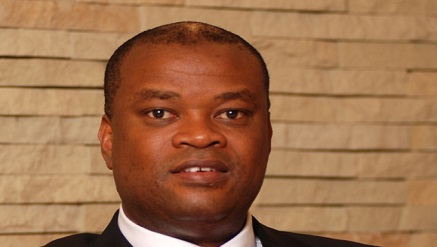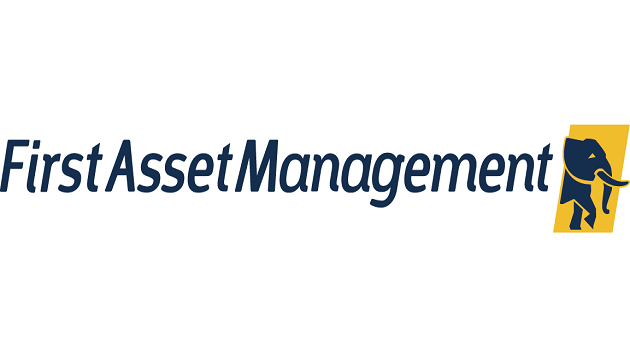E-Financial
MasterCard Lists Expectations from Digital Financial Services Lab

MasterCard has expressed its expectations Digital Financial Services lab recently launched in East Africa with funding from the Bill & Melinda Gates Foundation.
In a telephone chat with Nigeria CommunicationsWeek, Daniel Lanre Monehin, division president, Sub-Saharan Africa at MasterCard, said although the lab comes up in East Africa, MasterCard will ensure innovations and applications developed therein be used to leapfrog financial inclusion in the African Continent.
Globally, digital payment innovations let more people take advantage of formal financial services. These tools are simple to use, efficient and have the potential to dramatically reduce costs.
Despite these innovations, there are still 2.5 billion adults around the world who are excluded from the formal financial system. These people lack access to basic financial services and are forced to rely on cash, which creates instability and significant risks.
MasterCard is notable as a leading global payments solutions company that provides a family of well-known, widely-accepted payment card brands including MasterCard, Maestro and Cirrus and serves consumers, financial institutions, and businesses in over 210 countries and territories worldwide.
Monehin said that the new initiative seeking to impact more than 100 million people even globally, by developing practical and cost-effective financial tools that expand access and help build stable futures over the long term.
Specifically, the Divisional President said that Africans fates are now in their hands, hence MasterCard is interested in tackling issues related to biometrics, pensions, e-payment and cashless economy policies, and bring the financially excluded into the system.
He reiterated that through an $11 million grant over three years from the Bill & Melinda Gates Foundation, the lab will generate new ideas with local entrepreneurs, governments and other stakeholders across East Africa, and rapidly move from concept to reality.
“Although the lad is launched in East Africa, but the innovations coming from there will not only be implementable in East Africa, or Africa, rather MasterCard is interested in addressing several critical financial inclusion challenges. Every economy has its peculiar challenges; what we want is for Africans to develop applications that will serve the people and bring the financially excluded on-board,” Monehin said.
While expressing confidence on the viability of the project, he cited the South African Social Security Agency (SASSA), one of the world’s first debit card-based payment systems for welfare benefits and social security, which has saved the country $350million over a five-year period.
He said, “MasterCard is passionate about the new innovation and we draw our inspiration, again, from the SASSA project in South Africa where the debit card issued to the citizens serves multiple purposes. Today, South African uses the card to disburse government pension, disability, and public assistance payments because of its biometric-debit card composition.
“Unlike normal debit cards, the South African cards require users to have their fingerprints and voices digitally analyzed by computers. In effect, they’re the next generation of the EBT cards commonly used for food stamps in the United States”.
In Nigeria, he said, MasterCard is passionately involved in the management of payments account specific information under the ongoing national identity management scheme, and hopes “the Card when activated will help in bring about 70% of the financially excluded Nigerians in the banking system; deepen e-payment and help in the disbursement of pension”.
Expatiating on the payments technology deployed by Mastercard under the program, Monehin said the eID card is a chip and pin card certified according to the EuroPay, Mastercard and Visa (EMV) standard for globally interoperable, secure payments, which is mandated by the Federal Government, and it is approved and licenced by the CBN.
Thus, MasterCard’s vision for setting up the digital financial service lab was geared towards addressing issues where, “Many people lack access to the most basic financial services, leaving them trapped in a cash economy that imposes greater risks and costs on those least able to afford them.
He added that the investment made by the Gates Foundation, coupled with MasterCard strong innovation processes, they will create and scale financial services that open up a world of inclusion and help people build better, brighter futures.
Daniel who is primarily focused on establishing the MasterCard brand presence, driving card issuance, increasing acceptance, deploying innovative solutions and partnering with market regulators, noted that the new lab will be part of MasterCard Labs, MasterCard’s global Research and Development division that focuses on the evolution of technological and consumer trends and has created hundreds of prototypes over the last several years in a variety of areas from payment acceptance to authentication to P2P payments.
E-Financial
NIBSS, Others Flag 13,417 Nigerian Fraudsters on Person of Interest Portal

At least 13,417 individuals linked to fraudulent activities in Nigeria’s financial system have been captured on the Person of Interest Portal jointly developed by the Nigeria Inter Bank Settlement System (NIBSS) in collaboration with the Central Bank of Nigeria (CBN), security agencies and other stakeholders.

Premier Oiwoh, managing director of NIBSS, disclosed this while speaking on ongoing efforts to curb fraud in the payments ecosystem, noting that the portal which contains names and photographs of suspects has been actively used by law enforcement agencies since it began capturing data from 2019.
Oiwoh, while noting that fraud management remains a core responsibility of NIBSS, noted that the number of reported fraud cases has declined over the past five years, the value of losses remains a key concern for regulators and operators.
According to him, actual fraud losses stood at about N17.67 billion in 2023 before rising sharply to N52.26 billion in 2024, mainly due to a single incident involving N31.1 billion by one entity. He noted, however, that losses dropped significantly in 2025, reflecting tighter controls and improved collaboration across the industry.
He explained that Lagos continues to account for the highest concentration of fraud cases due to its position as the country’s commercial hub, while Abuja has also recorded a notable rise, with other states still featuring in reported incidents.
By transaction channel, Oiwoh said fraud is most prevalent in e-commerce and internet banking, followed by POS, mobile and web platforms.
He identified social engineering as the most common technique used by fraudsters, warning that insider abuse now poses the greatest threat to the system.
“Insider involvement is high, and recent investigations have confirmed this. Many of the fraud cases we are seeing today involve insiders, including former bankers,” he stated, noting that coordinated industry action has yielded results, and that joint efforts last year alone prevented losses of about N20 billion that could have been lost to fraud.
He raised concern over non-reporting of fraud incidents revealing that fraud reporting declined by about 34 per cent in the last quarter of 2025.
He warned that failure to report allows perpetrators to move freely between institutions undetected.
“In several cases investigated last year, individuals involved in fraud simply moved to other institutions because incidents were not reported. Non-reporting is unacceptable,” he said.
He said NIBSS, working with the CBN, the Nigerian Financial Intelligence Unit, and security agencies, has integrated centralised data systems, including industry watch lists, politically exposed persons databases, and customer account repositories, into the Person of Interest Portal to strengthen monitoring, identity management, and fraud prevention.
Credit… Leadership
E-Financial
CBN Prepares Fresh Debit Card Rules to Improve ATM Services

Central Bank of Nigeria (CBN) is to introduce new rules to improve how debit cards and Automated Teller Machines (ATMs) work in Nigeria, according to Olayemi Cardoso, governor of the apex bank.

Cardoso, made this known through Fatai Karim, his special adviser, at an event held over the weekend.
According to him, the new rules are meant to solve ongoing problems with cash withdrawals and to restore public trust in electronic payment systems.
The CBN explained that banks will now be required to issue debit cards based on the number of ATMs they have installed. This means a bank should not issue too many cards if it does not have enough ATMs to support them.
The policy is expected to reduce long queues at ATMs, frequent machine breakdowns, and uneven access to cash across the country.
The CBN noted that repeated ATM failures and cash shortages have made many Nigerians lose confidence in digital banking, even though electronic transactions are increasing.
The Governor said the new policy will soon be introduced to clean up the system and ensure banks properly balance the number of debit cards they issue with the ATMs they operate.
E-Financial
First Asset Management Receives Upgraded Ratings from Agusto &Co and DataPro

First Asset Management, a subsidiary of FirstHoldCo Plc has recorded a significant milestone as its rating was upgraded to ‘AA’ from ‘AA-’ by DataPro, reflecting the firm’s strong fundamentals and sustained resilience in Nigeria’s Asset management landscape.

The rating upgrade, issued in DataPro’s latest rating report, underscores First Asset Management’s diversified income base, high-quality investment portfolio, and experienced team, all of which continue to support the firm’s long-term stability, sound governance framework, and consistent performance.
The improved rating highlights the organisation’s ability to maintain strong operational fundamentals while effectively navigating market cycles. It further reflects First Asset Management’s disciplined investment philosophy, prudent risk management practices, and commitment to delivering value-driven solutions to its clients.
Speaking on the upgrade, Ike Onyia, Managing Director/CEO of First Asset Management, stated, “We are pleased with DataPro’s decision to upgrade our rating to ‘AA’. This recognition affirms the depth of our investment expertise, and the consistency of our governance and risk management processes. We remain focused on sustaining strong performance while delivering reliable investment outcomes for our clients.”
In a related development, Agusto & Co. has upgraded the rating of the First Asset Money Market Fund to ‘Aa-(f)’ from ‘A+(f)’, further reinforcing the strength of First Asset Management’s product offering.
According to Agusto & Co., the upgraded rating reflects the fund’s consistent low exposure to interest rates and liquidity risks, as well as the fund manager’s commendable professionalism and prudent investment approach. The rating affirms First Asset Money Market Fund’s position as a formidable investment vehicle for capital preservation and steady income generation.
First Asset Management continues to maintain a strong position within Nigeria’s asset management industry, supported by its disciplined investment framework, experienced investment professionals, and a growing suite of products designed to meet the evolving needs of retail and institutional investors.
DataPro and Agusto & Co. are both recognized leaders in ratings and investment research in Nigeria, with extensive experience providing independent assessments across multiple sectors. Their ratings are widely accepted as benchmarks for evaluating financial strength, risk management, and business sustainability.
First Asset Management is a leading Nigerian investment manager within the FirstHoldCo Group. The firm has evolved into a full service investment platform, offering integrated wealth and portfolio solutions across the Group.
First Asset Management manages diversified strategies spanning fixed income, equities, alternatives, passive and quantitative products, in multiple currencies for a variety of individual, intermediary and institutional clients.

 General News3 days ago
General News3 days agoPalmPay User Shares Experience on Fintech Apps to Trust in Nigeria

 General News3 days ago
General News3 days agoNigerians Target Self-Improvement, Business Startups in 2026 Google Data

 News3 days ago
News3 days agoStakeholders Demand Stronger Governance and Infrastructure to Drive Tech Adoption @ Lagos AI Summit

 News3 days ago
News3 days ago35 Million Nigerians Face Acute Hunger in 2026, UN Warns

 General News3 days ago
General News3 days agoHow Inside Jobs and Policy Shocks Trigger Nigeria’s Rising Loan Crisis

 E-Financial17 hours ago
E-Financial17 hours agoFirst Asset Management Receives Upgraded Ratings from Agusto &Co and DataPro

 News17 hours ago
News17 hours agoAnambra Cuts Monday Pay to Kill Sit-at-Home

 General News17 hours ago
General News17 hours agoNigeria Treats Religious Violence as Attack on State – NSA Ribadu

























